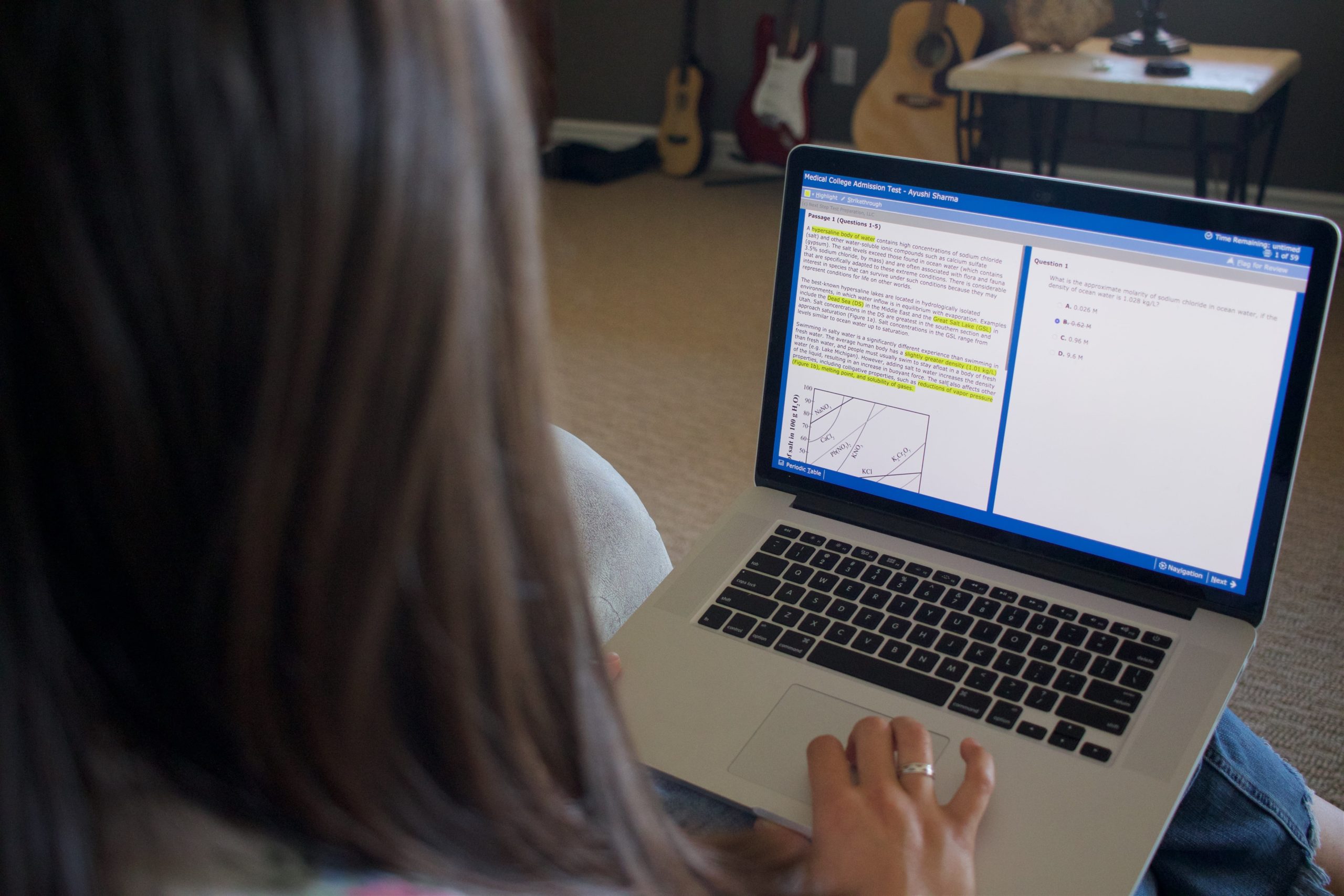
Students often invest a lot of energy in trying to predict their final MCAT score based on MCAT practice tests. While this is to some extent unavoidable given how stressful it can be to study for the MCAT and how important the MCAT is, one of the limitations of predicting your test score based on previous practice materials is that your performance on MCAT Test Day itself can have a huge impact on your results. Most students understand that on Test Day, you want to know as much as possible (both in terms of content and strategy), but sometimes students pay less attention to making sure that they can get the most out of what they know by optimizing their energy and state of mind.
In order to get the most out of what you know, you want to be energetic and highly alert, but not too anxious. This is easy to say, but can be harder to do. In this post, we’ll review some strategies that you can put into place to help make this happen in MCAT Test Day.
Sleep
Do your best to get a reasonable amount of sleep both the night before your MCAT Test Day and in the week leading up to it. Success on the MCAT has less to do with regurgitating knowledge that you’ve memorized and has more to do with using your knowledge base to make sense of passages that present novel information and to solve problems that you may have never seen before. To do this optimally, you need to be alert and on your toes, and this is very difficult to do when sleep-deprived.
Studies have shown that sleep deprivation negatively impacts cognitive performance, so you want to do your best to avoid it.
Food
Eating a healthy diet is important in general, but food is especially important on Test Day, when you need to wake up early in the morning and sustain intense focus for 7.5 hours. Since you will only have short breaks while taking the test (10 minutes, 30 minutes, and 10 minutes, respectively; but actually less, since you need to allow time for checking back in), start thinking about food choices that you can eat quickly and will provide you with sustained energy.
My personal go-to foods for Test Day were apples (a source of carbohydrates with ample fiber to avoid a sugar spike and subsequent crash) and almonds (a source of healthy fats and proteins that I could quickly shove into my mouth). However, you will probably want to experiment with what works best for you.
Physical Activity
Similarly to a healthy diet, physical activity is important in general but is also something to consider for Test Day. Doing some quick stretches or a quick jog in the morning to get the blood flowing may be a good idea, and you might also want to consider doing some stretches at the test center during the breaks, to help maintain energy and alertness. Don’t worry about whether it looks weird! Your own energy level is the only thing that matters.
Caffeine
If you regularly consume coffee or tea, Test Day is not the time to change your habits. However, you may want to think ahead in terms of bathroom breaks – for example, if you’re a coffee drinker, you may want to consider espresso instead. The basic idea, though, is that Test Day, or the week before Test Day, is not the time for dramatic changes in your routine one way or the other. If you’re a coffee drinker, this isn’t the time to quit, and if you’re a non-coffee-drinker, this isn’t the time to start. The same logic applies to other personal habits that you have in general.
Practice Under Test-Like Conditions
In the month or so before Test Day, if not earlier, start getting in the habit of taking practice MCAT tests under test-like conditions – that is, early in the morning, with realistic breaks, in an environment that provides a reasonable simulation of a testing center (such as a less than perfectly quiet library). The idea here is that Test Day will feel somewhat like just a normal Saturday (or whichever day you normally practice on).
Trust Your Preparation and Practice
Hopefully by the time you’re taking the MCAT, you will have thoroughly reviewed your content and have done enough practice to have a realistic sense of what the MCAT will look like. On Test Day itself, it is entirely possible that you will encounter hard passages – but you need to trust your preparation and understand that if a given passage is difficult for you, it will be difficult for everyone else too. Another way of thinking about this is to realize that if you find a passage to be difficult, it is probably because the passage is objectively difficult, not because you’re underprepared. This realization will set you up to tackle the passage in a clear-eyed way and do the best you can.
Cultivate Confidence
In the immediate run-up to Test Day, make a deliberate effort to cultivate confidence. Remind yourself of all the hard work that you’ve put into studying and how much you’ve learned. Remind yourself of all of your other accomplishments on the way to med school. Reassure yourself that you’ve got this, and that no mere standardized test is going to stand between you and med school. This may sound corny or uncomfortable, but in all seriousness, a deliberate dose of self-confidence can pay very real dividends on Test Day.
Take a Deep Breath and Relax
You should be mindful to schedule rest days in throughout your MCAT study schedule. However, this is even more vital the day before the MCAT. Sneak in some review in the morning, or even your final practice exam, but make sure you give yourself enough time the rest of the day to relax and put your mind at ease.
To summarize, remember to take some time to focus on the aspects of MCAT prep that don’t have to do with content review or practice exams! Good luck and you’ve got this!
Written by Blueprint MCAT (formerly Next Step Test Prep) MCAT Experts.
Search the Blog

Free Consultation
Interested in our Online MCAT Course, One-on-One MCAT Tutoring or Med admissions packages? Set up a free consultation with one of our experienced Senior Student Advisors.
Schedule NowPopular Posts
-
MCAT Blog What's on the MCAT?
-
MCAT Blog How to Review MCAT Full Lengths

Free MCAT Practice Account
Need great MCAT practice?Get the most representative MCAT practice possible when you sign up for our free MCAT Account, which includes a half-length diagnostic exam and one of our full-length MCAT practice exams.
Learn More







